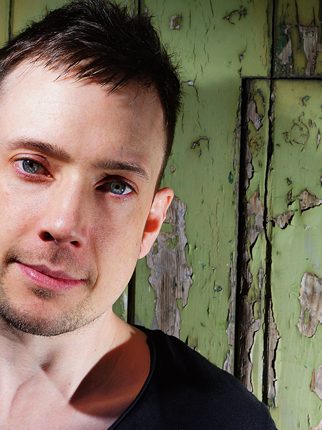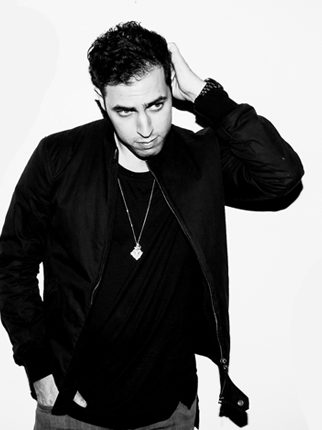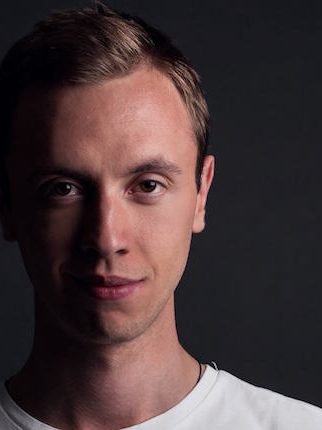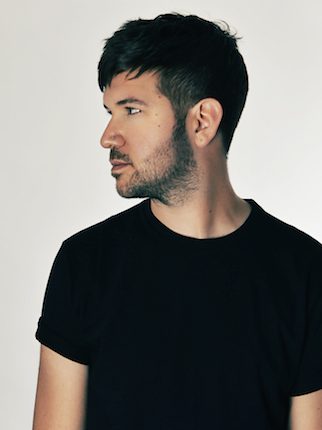A Cappella: Rob Garza
While some artists have become international sensations overnight, most have spent years in the studio and on the road, honing their skills and building their repertoire, before making a splash on the global scene. We discuss that process and the tools of the trade in our A Cappella series.

He’s traveled the world through sound and his international tastes echo through every beat. Peep the Your Calling EP, a collaboration with producer Neighbour, for a kaleidoscopic voyage through all-nighters turned early mornings in the desert (“Morning Chant”) and the title track’s dreamy disco drips. Garza’s new sonic palace is his recently launched independent imprint Magnetic Moon, where he’ll continue to release the sounds of the world, including his tripped out Blue Agave Fields EP and his house-centric Palace of Mirrors EP.
On the events side, Garza is also a founder of the UR Art Festival, a family-friendly boutique daytime music festival and celebration in Southern California, which spotlights music, innovative fashion and interactive art. This year’s season finale, happening Sunday, September 13, is headlined by Garza and fellow UR Art co-founder Philipp Jung of M.A.N.D.Y./Get Physical Music fame.
Any artist as well-versed in the various flavors of global electronic music as is Garza is, too, a master producer. Switching audio lanes so drastically is no easy feat, so we linked up with Garza to discuss his production process and overall creative flow.
Fact or Fiction: Anyone today can buy a laptop and audio production software and become a producer/DJ seemingly overnight. What’s your take on this?
Anyone can become a producer or DJ overnight, but that doesn’t mean they’re good. It’s all about taste. Technology allows more people to make bad music. For me, it’s about curation and sensibilities, which are built around taste more than technology. A lot of taste comes from exposure to different sounds and styles. If you’ve been brought up on just EDM, that’s like somebody who has ever only drank Coca-Cola. Whereas someone who is a sort of a musical sommelier is someone who knows all the subtleties and nuances of different sounds, styles, and genres to give you something more compelling on the sonic level.
Self taught vs. mentor vs. schooling, how did you acquire your skills?
When it comes to learning, I believe in the “by any means necessary” philosophy. Career-wise, I jumped right in and started putting out records myself in the early 1990s and had to hustle. By the mid-‘90s, I met Eric and we started Thievery Corporation. There are so many people who have helped out along the way. Collaborating with partners and musicians is also a big part of learning, which I still feel I am up to this moment. All of these different facets combine, whether it be through being self-taught, schooling or mentors. They all come together in the big picture through one’s career creating music.
“Technology allows more people to make bad music.”
How and why did you get your start? Any interesting anecdotes there? Is there anyone you owe “big time?” Why?
My family moved to Connecticut in 1983, and in high school they had these electives for an electronic music course. I didn’t really know anyone at the school at first, so I immersed myself in this program. I had a chance to work with modular synthesizers, samplers, drum machines, step sequencers, and reel-to-reel tape decks. I learned that with electronic music one is only limited by his/her imagination.
Are there creative boundaries when approaching a remix?
I don’t have too many boundaries for remixing other than having it not sound too much like the original. For me, one of the things I love about remixing is reinterpreting music. It really feels like putting together a puzzle and keeps your chops good creatively. It’s kind of like reverse engineering a track and building something new from the different parts. You get a sense of how other artists work and record. For me, it’s fascinating and challenging in a good way.
What’s the first production trick you learned that you still use today?
There are a few different things. The most important thing is to follow your instincts and to rely on your ear. For me, the ear is key. Like Duke Ellington said, “If it sounds good, it is good.” When Thievery started, we did it on simple, bare-bones equipment with no multitracks or software; very guerrilla style. Whatever worked is what we would do. People ask me to this day how we got some of our sound, and I have no idea. Most of the time it would be me and Eric in a room squeezing the sound outta all these different types of gear. Another major thing for me in being creative is knowing when something is finished. It’s easy to have an unfinished masterpiece, which I run into a lot with artists who are just starting out. I think that’s one of the big divides in terms of being an actual artist: to be able to look/listen to your own music and know it’s finished.
Follow Rob Garza on Facebook | Twitter
Follow Thievery Corporation on Facebook | Twitter | SoundCloud





